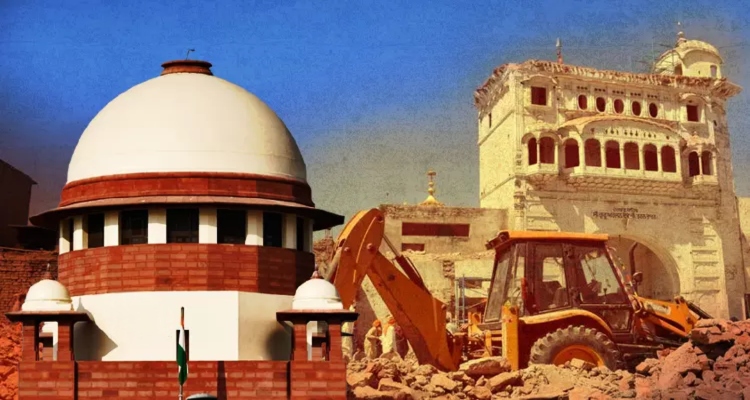
The Supreme Court on Thursday issued notice regarding a petition that seeks contempt proceedings against officials of the Municipal Corporation of Greater Mumbai (MCGM) in connection with the demolition of a Gurudwara.
A bench comprising Justices BR Gavai and KV Viswanathan also directed that the status quo be maintained in the matter until the next hearing date and issued notice to the concerned respondents.
The petitioner, Pravin Jivan Walodra, was represented by Advocate Soumya Priyadarshinee. Walodra has accused MCGM officials, a statutory body under the Brihanmumbai Municipal Corporation (BMC), of violating a previous Supreme Court order that stayed demolitions of properties. He seeks the initiation of contempt proceedings against these officials, claiming that their actions have breached the court’s directive.
According to the petition, the demolition took place on October 15, 2024, in direct defiance of interim orders issued by the Supreme Court on September 17 and October 1, 2024. These orders explicitly prohibited demolitions across the country without prior court approval.
The petitioner contends that the MCGM officials demolished the Gurudwara structure without seeking the Court’s permission, despite the ongoing legal proceedings.
The petition further challenges the reasoning provided by the MCGM for the demolition. The officials claimed that the structure was located on a public road.
However, the petitioner argues that this reason was not recorded in any official correspondence or documents shared with him, nor does it appear in the records available to him.
Walodra emphasized that he and his family had been peacefully residing in the Gurudwara for many years, with their predecessors having done so since around 1955. He also noted that they had been paying property taxes on the plot and structure, as indicated by supporting documents. The petitioner maintains that this long history of residence and legal compliance should have protected the property from demolition.
In light of these allegations, the Supreme Court’s intervention is seen as crucial to ensure that the rights of individuals and institutions are upheld in accordance with the law. The case highlights concerns regarding the adherence to legal orders and the protection of property rights, particularly in matters involving religious institutions.
The court’s decision to maintain the status quo underscores its commitment to preserving the rights of the petitioner and upholding judicial directives.




